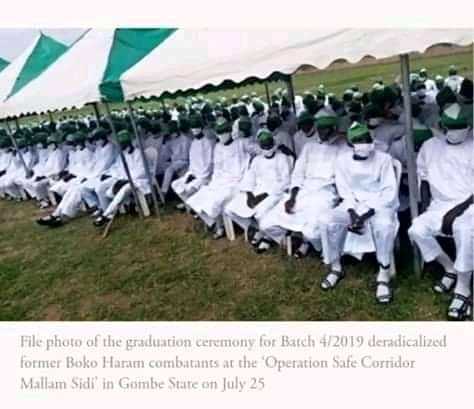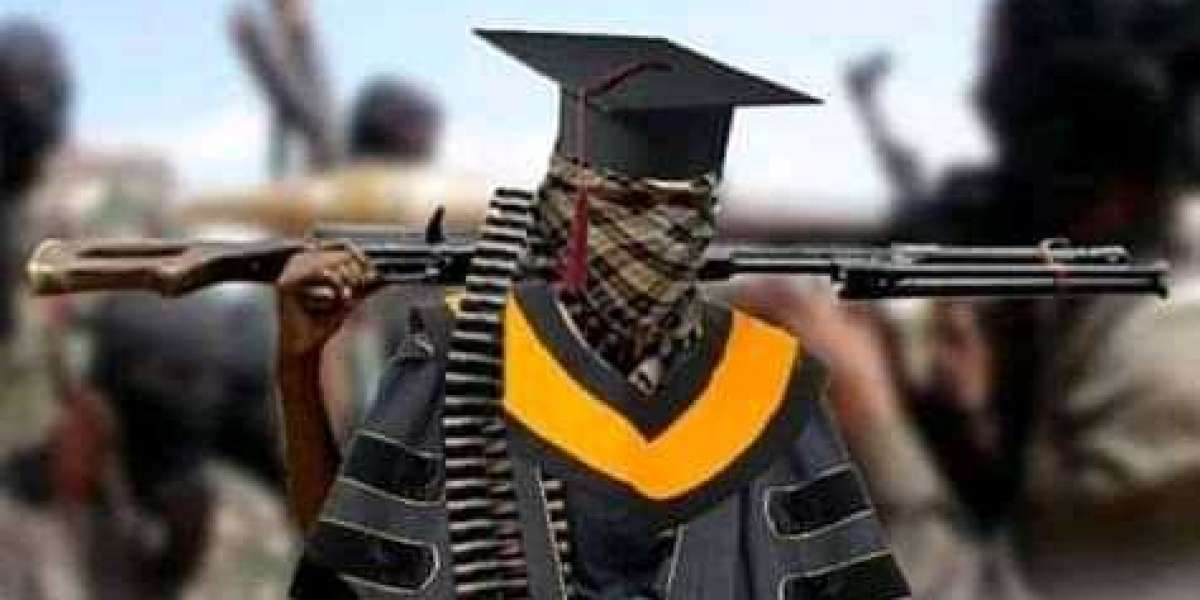“I assure you that Boko Haram will soon know the strength of our collective will and commitment to rid this nation of terror and bring back peace, we shall spare no effort until we defeat terrorism”, these were the words of Mohammed Buhari a day after his victory as the president of Nigeria. It is six years already after this firm statement with little or no progress towards the menace with all handwritings pointing at the obvious that Terrorism may never end in Nigeria.
How did Terrorism start in Nigeria?
Tales of countless massacres, ethnoreligious clashes that have taken tons of lives of innocent citizens has become a common phenomenon in Nigeria as an independent nation
Senseless killings in Nigeria date back to the Anti Igbo Pogrom 1966 which saw the massacre of roughly thirty thousand Igbo people and easterners in cold blood.
Unjustified killings seem to be a way of life that Nigerians grew to absorb as no ethnic group in Nigeria accommodated the other. But, these killings took a mild quench after the civil war and Nigerians enjoyed a peaceful environment for a while.
Everything went on as normal before the unusual rise of the terrorist group, Boko Haram in 2009. Boko Haram, founded by Mohammed Yusuf who was allegedly killed in 2009 in Police custody, began its formation in 2002 in Maiduguri disguising itself as a religious institution with an Islamic school and a mosque.
Ignorant Muslim parents enrolled their kids in the mentorship of Mohammed Yusuf but the goal of the group was contrary to what they thought.
Boko Haram whose official name is 'Jama’atu Ahlis Sunna lidda’awati wal-jihad' meaning a ‘people committed to the propagation of the prophet’s teachings and Jihad’ led on with the motive of shutting down western education in the northern region.
Her activities escalated to attacking military camps, churches, and mosques, making the insurgent group a multi-facet terrorism group that incorporates different mechanisms of terrorism that includes Religious terrorism, and Ideological Terrorism.
These days, a greater number of Nigerians believe that the insurgency has fanned its flame into revolutionary terrorism as there are speculations that there are political inclinations.
It is justifiable to state that the root cause of terrorism in Nigeria hovers around the borders of political, religious, economic, and social indifferences.
The Reign of Boko Haram in Nigeria
Boko Haram which began its operation in 2009 under the tenure of Goodluck Ebele Jonathan has prevailed with a reign of eleven years as the Nigerian military seems to be making no visible progress in curbing the insurgency.
The terrorist group which began with fierce attacks against western education grew into capturing certain villages on Nigerian soil, declaring a caliphate on these zones, sustaining the terror they have imposed on their territories, and making subtle moves to overthrow the Nigerian government and establish an Islamic state.
Boko Haram began with rounds of attacks on government bodies and security buildings in Borno state.
These attacks met a dead end as a coalition of security forces engaged them in a gun battle that led to the death of Mohammed Yusuf. The parade of his dead body on the television and major news outlets led to the announcement that the war against Boko Haram is over.
Unfortunately, there was a rebirth of insurgency in 2010 as Boko Haram under the leadership of Abubakar Shekau. This time around the terrorist group that was once underrated by the Nigerian military got a terrible boost in its operations, handling several factions as the Abu Usmatul al-Ansari’s Salafist faction and Ansaru faction with strong backups from international terrorist bodies like al-Qaeda and al-Shabaab.
Her actions escalated after then, with brute killings, massacres, and abduction of school children, clerics, and notable figures of the society. Boko Haram is responsible for the death of over sixty thousand lives, displacement of over two million Nigerians, and abduction of over seven hundred school children ranging from the kidnaps of Chibok Girls, Daura girls, and kankara boys.
Some of these kids were lucky enough to return after much negotiation by the Nigerian government but some others like Leah Sharibu are still missing.

Nigeria’s Approach to Boko Haram
With eleven successful years of terrorism, it seems the Nigerian government is getting confused about which approach to use to curb the raging menace.
Ranging from the use of defensive military tactics, the formation of civilian vigilante groups, to the sad proposition of Spiritual measures, it is obvious that the Federal government of Nigeria has run out of options to tackle the insurgency in the nation.
The Nigerian government has taken a shameful slide resorting to striking treaties and negotiations with Boko Haram, leaving the body growing wings as an untouchable faction in the country.
The back and forth reports of negotiations and bargains make the fight against terrorism in Nigeria another avenue for military chieftains to siphon funds and pad the financial budget for their gains.
These days, the operations of Boko Haram are no longer secret activities, as residents of core northern regions that are on oppression have been lamenting about seeing these terrorists walk the streets in broad daylight with sophisticated weapons, playing with kids at strategic locations, and carrying out their activities on major Nigerian highways.
It sounds laughable why an abduction of 300 boys can be successful on a secondary school that is few blocks away from a military checkpoint and their extraction is done through major roads like the Katsina-Kankara road without any interruption by security agencies.
The Nigerian army boasts of a massive strength of 250,000 soldiers, 15,000 airforce personnel, a supposed ranking as the best land force in Africa, with a global ranking of 42 out of 138 countries; a figure which seems to be a great advantage. But with all the military prowess of the Nigerian government, why is Boko Haram still advancing its operations?
Why Nigeria may not defeat Boko Haram
The issue of Boko Haram has grown beyond a security crisis and has built its stronghold on the political bias of the northern region, her religious affiliations, policies, and beliefs.
The Nigerian government has been making blind approaches by handling the cases of insurgency as a security breach without tackling the root causes of the menace.
Until successful advancements are launched to address the political affairs of the northern region, dissolve some incoherent policies imposed to affect non-Muslim residents, and organize massive sensitizations to enlighten the inhabitants of these locations of the dangers of embracing terrorism, the fight against Boko Haram will remain another unending battle in futility.









